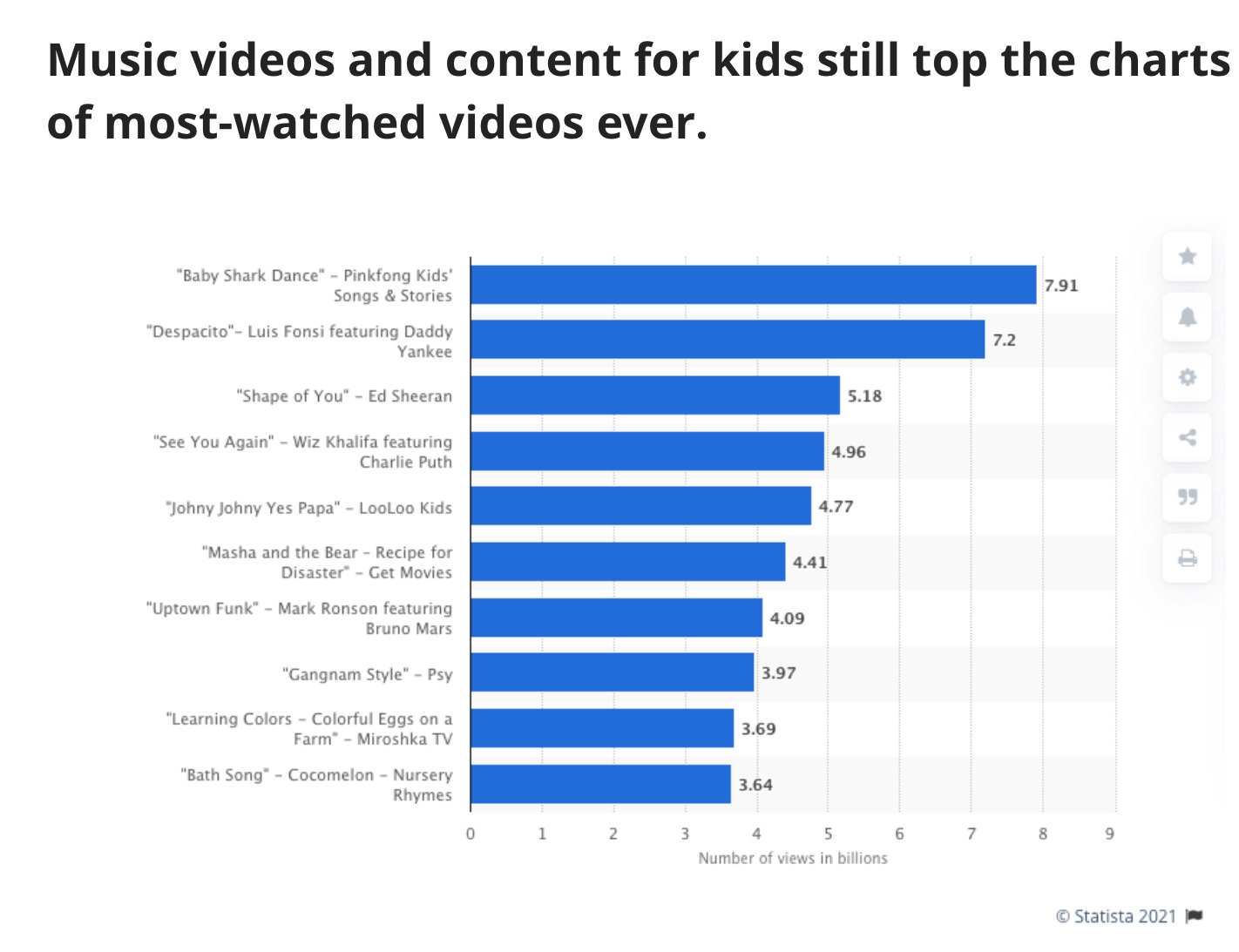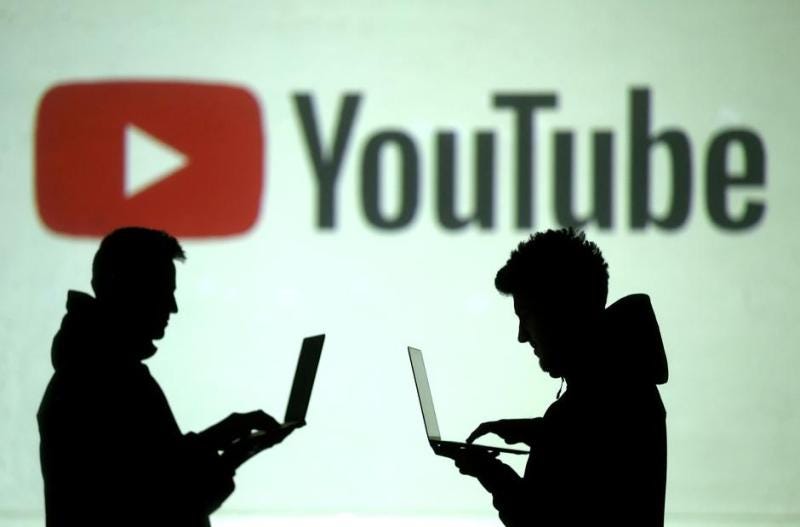🎥 YouTube's BackDoor into the Music Industry
The story of how YouTube has got a free pass for not paying music royalties on its video streaming platform for years, till Viacom sued it in 2007.
We write a daily newsletter on all things Music, and the Business and Tech behind it. If you’d like to get it directly in your inbox, subscribe now!
What’s good everyone?
Over the weekend, I came across an interesting case study of YouTube’s love-hate relationship with the music industry over the years, in Donald Passman’s book ‘All you Need to Know About the Music Business”
What’s the beef between YouTube and Music Business? 🤬
After all, YouTube remains the biggest platform for music consumption, even after all these years of music streaming platforms such as Spotify, Apple Music, and Amazon Music.
For instance, check out the most viewed videos of all time on YouTube, and it’s pretty evident that Music is miles ahead of any other category 👇🏻
Despite the massive audience that it generates owing to music, YouTube pays lesser than any other streaming platform to the music industry.
And this is after it announced that it paid a staggering $4 Billion worth of royalties to the pockets of artists, songwriters, and rights-holders during the past 12 months.
For comparison, Spotify paid out $5 Billion in royalty payouts in 2020 alone.
This is how YouTube stacks up against some of the other streaming platforms 👇🏻
So why does the platform which benefits the most from music, pay the least?
At the surface, it’s an obvious observation that since YouTube is a free service, its revenue model relies on, primarily advertisements (apart from the nascent YouTube Premium service)
On the other hand, Spotify has a hybrid model of ads and subscriptions, whereas Apple Music is purely based on subscriptions.
Therefore, Spotify and Apple Music have higher ARPU’s (Average Revenue Per User) than YouTube, and hence pay more 🤷♂️
However, a deeper dive into the history of the streaming industry paints a different picture 👇🏻
If you made it this far, it seems like you’re digging our content! Please share this and help support us to keep creating more such content 🙏🏻
The reason that YouTube gets away scot-free, is because of a quirk in the copyright laws called ‘Safe Harbor’, which has helped them benefit from music for years.
What is Safe Harbor?
A part of the historic Digital Millenium Copyright Act (DMCA) 📝 passed in 1998, Safe Harbor rules enable a digital service provider to not be liable for distributing content on its platform that infringes copyrights, if it didn’t create it, post it or know it was infringing.
Why so?
Well, so much content passes through any Digital Service Provider’s (such as YouTube) pipes, that it is impossible to track and control what each and every one of them has posted 👨🏻💻
However, if the copyright owner flags off the content as infringing, the DSP is liable to take it down.
Fair enough right? This was all good until YouTube showed up.
Suddenly, millions of videos started being uploaded on YouTube, and even if they knocked it off, thousands of similar ones popped up again.
Over and over again 🔁
This was true, until American Media conglomerate Viacom filed a $1 Billion lawsuit against YouTube in March 2007, which after much legislation was eventually passed in favor of YouTube in 2013, as the courts ruled that it did not really control what goes on its platform.
Long story short?
The Music Industry can’t do shit when it comes to controlling YouTube 🤷♂️
After the Viacom lawsuit failure, the industry simply decided to give a license to YouTube, as everyone figured that something is better than nothing, and hence YouTube ends up paying the least of all the streaming services combined.
While they have launched YouTube Music, a subscription-based platform for $9.99/Month, it still only has 30 Million subscribers and lags way behind Spotify and Apple Music.
While there have been talks of Safe Harbor laws being eradicated in the European Union, till anything becomes official, YouTube’s backdoor into Music is going to remain open 🚪
If you liked this newsletter from Incentify, why not share it with someone you like?
P.S- Follow us on Instagram and Twitter for more such content on all things Music and Culture, now!








